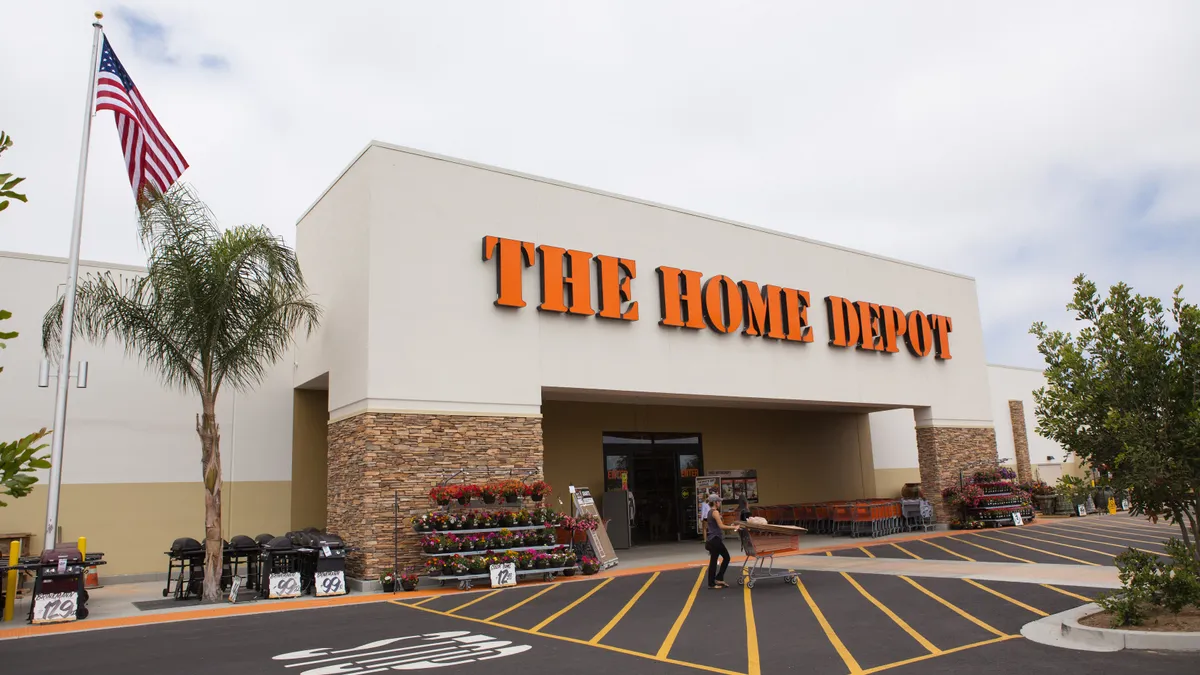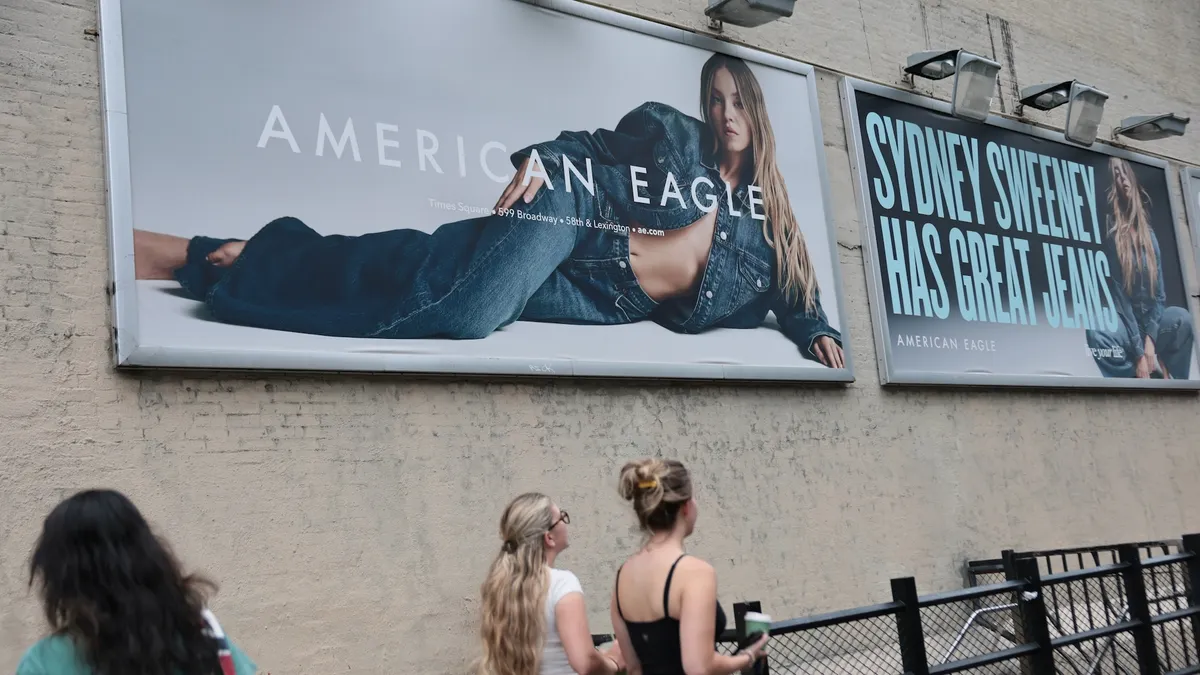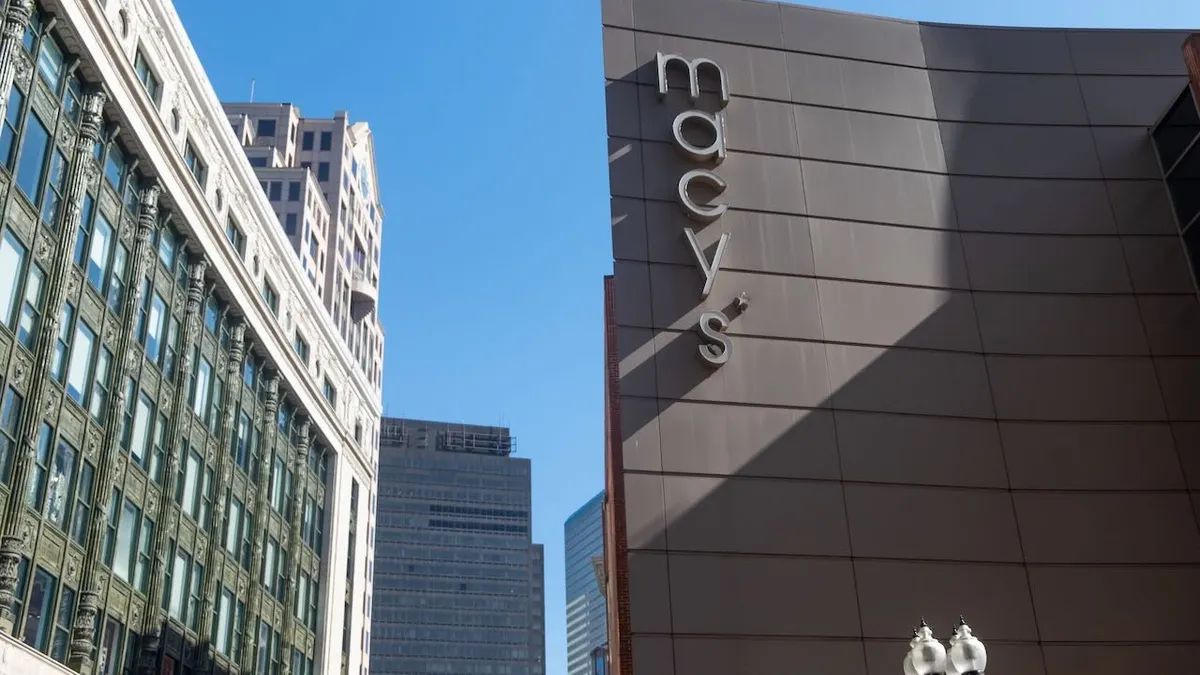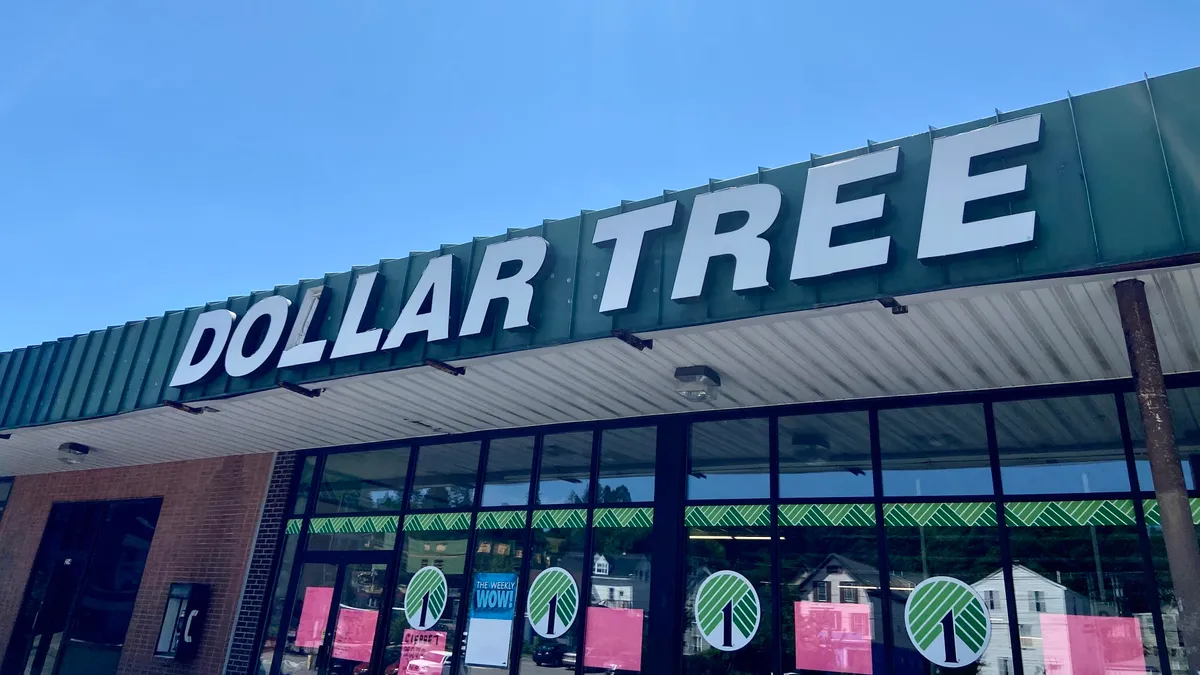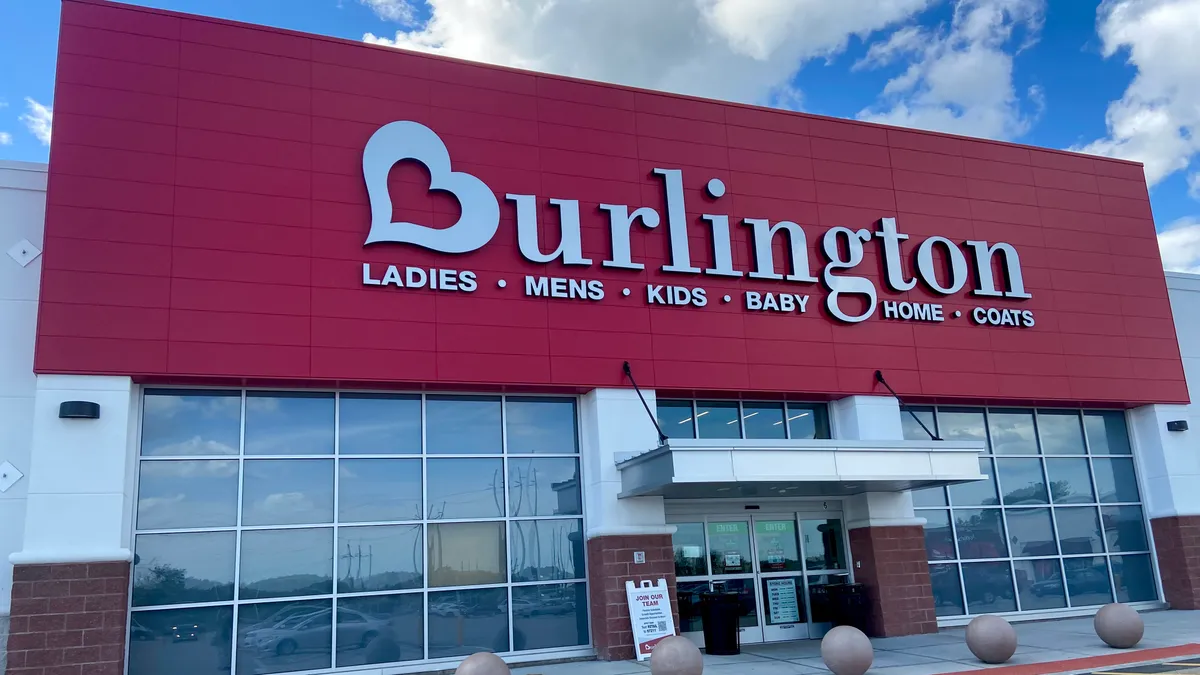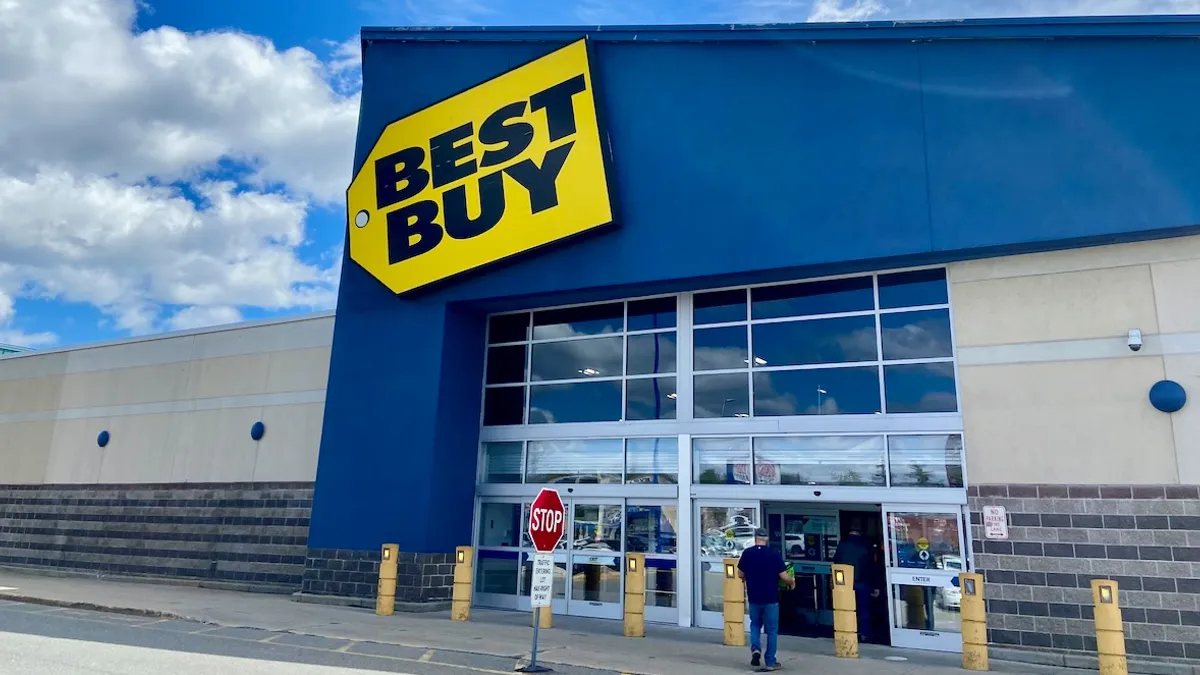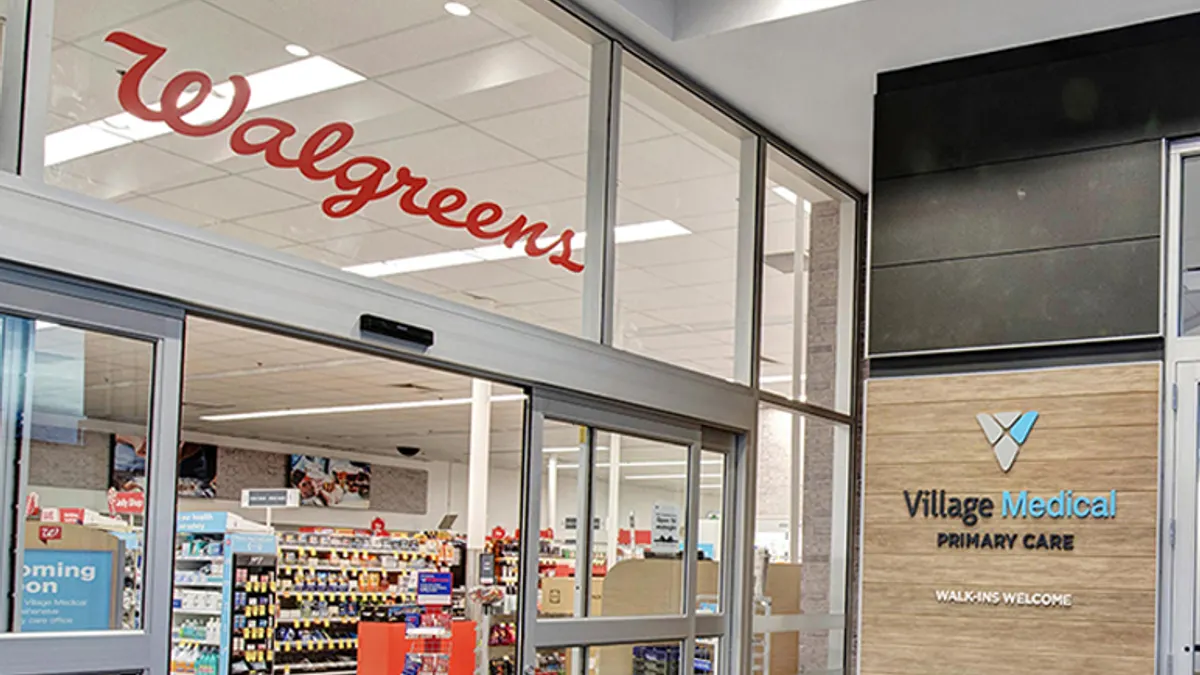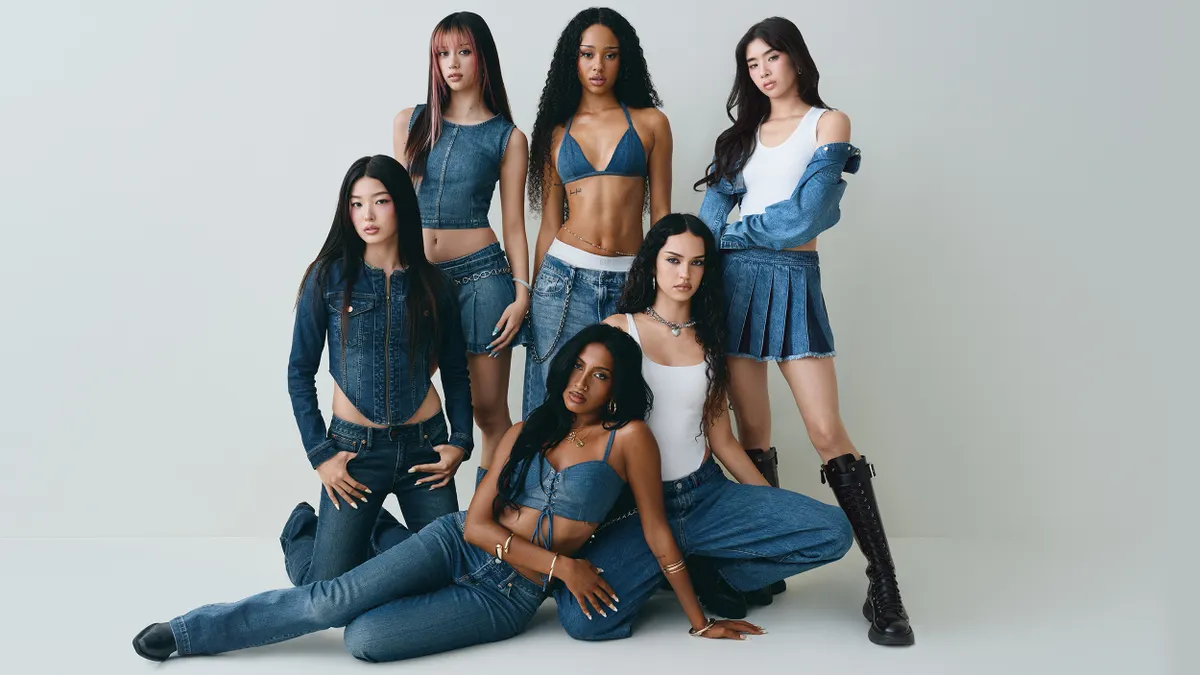As more than 100 retailers close up shop temporarily or reduce hours as part of the effort to slow the COVID-19 epidemic, GNC is keeping its doors open, including in areas with restrictions on resident movement and on which businesses can open their doors.
The vitamin and supplement retailer has instructed its employees to stay open and inform authorities that they are an "essential" business, as a retailer of food and beverages, under Department of Homeland Security guidelines, according to an internal letter from GNC general counsel Susan Canning obtained by Retail Dive.
Whether state and local governments will see it that way is still unclear given the complexity of how local restrictions are being enforced. One state with restrictions on which businesses can stay open told Retail Dive GNC would not be considered essential under its guidelines. But others left the matter open-ended.
Seven employees of the company from around the country told Retail Dive that they don't feel safe at the company's stores. Along with keeping its doors open, employees at GNC stores around the country said that the company has not provided them with disinfecting supplies, among other safety shortfalls they're concerned about. Employees that spoke with Retail Dive requested anonymity because they feared for their jobs.
"These are unprecedented times, and like other businesses serving the nutritional needs of Americans, we are working to support our customers," a GNC spokesperson told Retail Dive. "Approximately 75% of our current products are in need right now offering immune support, shelf stable protein, water and snacks and are available at accessible locations. As a food retailer, we are operating as an 'essential business' responsibly with our priority being the safety of our associates and our customers. This has involved emphasizing online and curbside delivery, reducing store hours, and providing a clean and safe environment for our people and customers. This work continues, as we respond to the challenges of a global pandemic."
Essential or not?
In the internal letter, GNC's general counsel acknowledged the "extraordinary circumstances we are collectively facing and the stress and anxiety that has been created" by the spread of COVID-19.
"In addition, GNC wants you to rest assured we may legally continue to operate," Canning said in the letter, citing DHS guidance that, in her words, "recognized retailers which sell food and beverage products as within the sixteen critical infrastructure sectors that are considered vital, or essential, to the United States."
She added, "In short, GNC remains open at this time because our business has been recognized by various federal and state authorities as an essential business." Canning instructed employees to show the letter to government authorities inquiring about store operations.
Retail Dive asked several state governments with restrictions on retail business operations whether GNC would be considered an essential business under their jurisdiction. One, Pennsylvania, specifically said GNC would not be considered essential under guidance for businesses ordered to close temporarily.
"GNC is a supplement shop, which is considered 'health and personal care' therefore it is considered non-essential and should not be open," a spokesperson for the state's economic development agency said in an emailed statement. "Pennsylvanians who are concerned that a business is not in compliance should reach out to local law enforcement."
GNC did not respond to questions about Pennsylvania's designation of "essential" retail. States that responded by press time would not weigh in on GNC specifically when asked.
"If we weigh in on this specific case, we will let you know," a spokesperson for the California department of public health told Retail Dive in an email. (In statewide guidance, California deemed "cannabis retail and dietary supplement retail" workers to be essential infrastructure.)
"[U]nlike some jurisdictions DC is not providing letters confirming that a business is essential," a spokesperson for D.C.'s deputy mayor for economic development said in an emailed statement. "We trust that DC businesses will do their best to provide essential services and to safeguard the health of their employees, customers and the public in line with Mayor [Muriel] Bowser's March 25 Order."
"We understand that some businesses have chosen to interpret Maryland's executive order very broadly in favor of continuing to operate and we ask them to exercise extreme caution and continue to make every effort to practice social distancing and offer options for customers to purchase products online," a spokesperson for Maryland's department of commerce said in an emailed statement. "In determining if a business is essential, we have asked that our businesses use their best judgment and weigh it against the potential negative impacts of remaining open."
Two GNC employees Retail Dive spoke with reached out to local authorities on their own. One in Pennsylvania was told by a local police official that the retailer would not be considered essential under the state's guidance. Another, in California, contacted a local health department, where staff expressed dismay that GNC was staying open and referred the employee to local law enforcement.
All that could point to confusion on the ground for GNC and other retailers that consider themselves essential under available guidance. Some local and state authorities appear to be letting businesses self-police to some extent.
Earlier in March, the National Retail Federation pushed for clarity on the issue, requesting the White House to provide "clear national guidance to resolve questions caused by a number of conflicting state and local orders that are triggering consumer, worker and business confusion, leading to cascading negative impacts on communities across the country."
'We don't feel safe'
Several employees said they don't feel the store is essential. More, they don't feel safe in the stores. Three employees, who did not want to be named for fear of retribution from the company, said the company has not enforced social distancing guidelines from relevant authorities, including stores in New York City and California, which have issued strict measures for residents and businesses to slow the spread of the pandemic.
"There is no social distancing being practiced at GNC," one employee in California told Retail Dive. "You could hug me. There's nothing preventing you from doing it. You can touch whatever you want, grab whatever you want, ask me to hand it to you."
Store workers have been told by their home office to stay home if they feel ill. But part-time workers at GNC have no sick pay, so they lose wages if they take time off, some employees say. Unlike some other retailers such as Walmart, the company has not made any provisions to provide sick time for hourly workers amid the spread of COVID-19.
As GNC keeps its stores open, it has provided some cleaning guidelines for store workers, but more than five employees told Retail Dive that GNC has not provided disinfectant supplies or hand sanitizer for store staff. Without supplies from the company, some employees and store managers have bought cleaning supplies, hand sanitizer and gloves for their stores with their own money.
"We don't feel safe to go into work," one employee told Retail Dive. "We don't have the proper equipment."
'A unique responsibility'
GNC is not alone in keeping its stores open. Other retailers, including Dillards, Hobby Lobby, Guitar Center and others have stayed open while tens of thousands of stores across the country have voluntarily closed, as the industry follows health official recommendations and local orders.
The supplement retailer's competitor, Vitamin Shoppe, has also opted to keep its stores open, though it has reduced hours. "The Vitamin Shoppe continues to follow all mandates and directives issued by Federal, State and Local authorities. Various U.S. and Puerto Rican agencies have designated food and nutritional supplement retailers, including The Vitamin Shoppe, as essential businesses," the company said in a statement.
GNC told its customers it was staying open because it believed it had "a unique responsibility to continue to deliver essential immune health solutions in hard-to-reach areas." The company has promoted its curbside pick-up, as well as auto-delivery, as customers stay home. (Some employees told Retail Dive traffic and sales at their stores have declined significantly.)
GNC has also highlighted supplements it sells such as Vitamin C, probiotics and zinc including on its informational pages tied to COVID-19, though the company is careful to point out there are no known preventative treatments or cures for the disease.
Financial strains
The pandemic hit at a crucial time for GNC. The company's finances are under stress. Last week, S&P Global downgraded the retailer deep into junk territory on the assumption that the company would default or be forced to restructure its debt.
"We believe conditions for GNC are deteriorating substantially due to the coronavirus pandemic, the anticipated macroeconomic downturn, and the limited access to capital markets," S&P analysts led by Khaled Lahlo said in an emailed press release.
The downgrade followed GNC's acknowledgment earlier this month in a securities filing that it likely would be unable to raise enough cash from operations to pay some of its debt and might not survive as a going concern.
The retailer has been leaning on its loyalty program and other services to stabilize its sales. Yet GNC continues to struggle, reporting this week that same-store sales fell 2.4% in the fourth quarter and it racked up a net loss of $33.5 million.
Lenders recently told GNC they were no longer pursuing a refinancing deal with the company, but the retailer says it is still pursuing its options.
Editor's note: This story has been updated to include details on California guidance on essential infrastructure.







